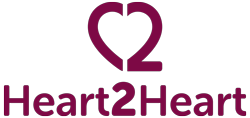Planning a Holiday With Your Heart Child
Download this information sheet as a PDF
The aim of this information sheet is to give you information if you are planning on going on holiday and your child has a heart condition.
Choosing your destination
Choosing the right destination for your holiday is really important. Factors you may need to consider include:
- temperature – will your child cope with very hot or cold weather?
- transport – will your child cope with long journeys, have problems with flying and so on?
- distance from hospital or heart unit. Is it important that your child can receive medical attention quickly?
Choosing your accommodation
Choosing the right accommodation may also be important. If your child gets tired easily or has problems walking, you will probably want accommodation that is near to any facilities you are planning to use. If you are taking medicines or INR strips with you that you need to keep cool, make sure your accommodation has a fridge.
Information from your doctor and consultant
If you have any concerns about taking your child on holiday, contact your cardiac liaison nurse or cardiologist for advice.
Your insurance company may ask for a letter from your GP or cardiologist to confirm that your child is fit to travel. This letter might need to confirm that:
- your child is fit to travel;
- your child’s health will not be put at risk by visiting your destination;
- your child is fit to fly; and
- your child’s heart condition is stable.
You might also want to ask your cardiologist for a letter explaining your child’s condition which you could show to any doctor you had to consult while you were away. If you are going to a
non English-speaking country, you may want to learn how to say that your child has a heart condition in the local language. You could also write these words down and keep a note with you.
Your cardiologist should be able to tell you where your nearest paediatric cardiac centre will be. You may want to take the address and contact details of this centre with you. It is always a good idea to have the contact details for your GP and cardiologist with you in case you need to get in touch urgently.
Medicines
Your GP can advise you about any prescribed medicines you need to take with you as well as any extra health precautions or vaccinations. Take plenty of all essential medications with you. If you are unfamiliar with local medicines, you might want to take things like rehydration sachets and children’s paracetamol as well.
Insurance
For most conditions you should have no problem in getting insurance cover for your child. Shop around to find the best deal and check carefully to see exactly what your insurance covers. Do not be afraid to ask lots of questions, especially ‘What if…’ questions. Most policies have a 24-hour emergency phone number. Take a copy of the policy with you and a note of the emergency phone number.
E111 forms have now been replaced by European Health Insurance Cards (EHIC). You should have one of these to receive any healthcare needed when visiting a European Economic Area (EEA) country or Switzerland. You can apply for an EHIC on-line at www.ehic.org.uk or www.dh.gov.uk/travellers, by phone on 0845 606 2030 or at post offices. Remember this is not a replacement for health insurance.
( For further information on the EHIC/GHIC, please refer to the SchengenVisaInfo.com website)
List of Travel Insurance Providers
Medical screening line
The insurer may ask you to speak to the medical screening line. Be prepared to answer questions on your destination, how long you will be away, your child’s date of birth, the name of their heart condition and how stable the condition is.
Stability is a major question for insurers. To check how stable your child’s condition is, you may be asked questions such as:
- what medication your child is on;
- the dosage;
- whether the dosage has recently changed;
- dates of admissions to hospital; and
- dates when you have had to go to A and E.
You may also need to describe what symptoms your child experiences.
Packing before a flight
There are strict rules about what you can take in your hand baggage on flights. These rules can vary according to the security situation at the time you fly and which airline you choose. If you are in any doubt, the best advice is to contact the airline beforehand and ask.
Solid medicines like powders or tablets should be allowed in the cabin but make sure everything stays in its original packaging.
Liquid medicine in quantities of less than 100ml are usually fine although you should bring them to the airport in a single, transparent, resealable plastic bag (about the size of a small freezer bag). You must present the bag separately for examination at the airport security point.
Essential medical equipment should also be fine if you have supporting documents from your cardiologist or GP. It will need to fit into your one item of hand baggage.
If you are travelling with an INR (blood monitoring) machine, carry the monitor and the strips in your hand luggage. The temperature in the baggage compartment of the aircraft can fall below freezing, which may affect how the strips work.
Oxygen when traveling
If your child needs, or may need, oxygen while flying, make sure you talk to the airline about this and any extra costs involved before you book your flights. Different airlines have different rules about the supply of oxygen so find out exactly what they can provide and check that this includes masks or nasal cannulas for delivering oxygen. The airline will probably need information from your consultant outlining your child’s oxygen needs. Make sure that either you or one of the flight attendants knows how to turn the oxygen on and how to change cylinders or bottles.
Most of the policies for travelling with oxygen by air also apply to travelling by sea. Contact the customer services department of the line you are sailing with for information.
If you are travelling by road, there may be restrictions about travelling with oxygen in some types of vehicles, on some roads. Your vehicle insurance company should know what these are.
Evidence and sources of information for this CHF information sheet can be obtained at:
(1) UK: Applying for a European Health Insurance Card (EHIC)
There will be no change to the rights and status of EU nationals living in the UK, nor UK nationals living in the EU, while the UK remains in the EU. London: GOV.UK; 2017. Available at:
https://www.gov.uk/european-health-insurance-card
(2) NHS Choices. London: NHS; 2017. Available at:
www.nhs.uk/NHSEngland/Healthcareabroad/EHIC/pages/about-the-ehic.aspx
(3) NHS Business Services Authority
Tel: 0300 330 1350
About this document:
Published: June 2014
Reviewed: June 2017
Due for review: June 2019
To inform CHF of a comment or suggestion, please contact us via info@chfed.org.uk or Tel: 0300 561 0065









